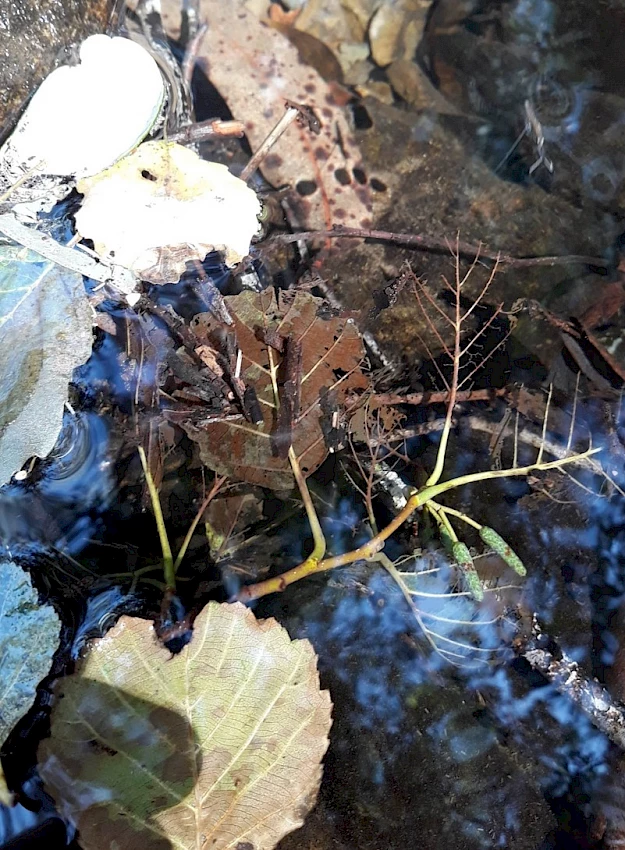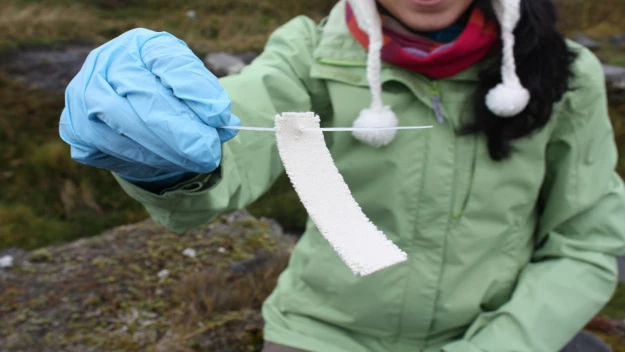Study in 'Science' warns of need to reduce human impact on aquatic ecosystems
Research conducted in collaboration with the University of Coimbra highlights the need to limit human impact on watercourses to prevent CO2 release into the atmosphere and control climate change.
A study published in the journal Science, with the participation of the Faculty of Sciences and Technology of the University of Coimbra (FCTUC), warns of the need to reduce human impact on aquatic ecosystems.
More than 150 researchers from 40 countries took part in the study, including UC scientists Cristina Canhoto, professor at the Department of Life Sciences (DCV) and researcher at the Centre for Functional Ecology (CFE), Manuel Graça, professor at DCV and researcher at the Centre for Marine and Environmental Sciences (MARE), and Verónica Ferreira, researcher at DCV/MARE.
The study estimates global decomposition rates of organic matter in freshwater ecosystems (a source of carbon emissions). Riparian plant decomposition is a fundamental process in forested streams and the basis of aquatic food webs.
The fieldwork took place in 550 rivers around the world, where the scientists carried out a standardised test to assess the decomposition rate of small pieces of cotton fabric (made up mainly of cellulose, a plant compound that is very abundant on Earth). Based on these tests, they then used predictive models and machine learning algorithms to estimate the decomposition rates of cellulose and leaves from a range of species in different areas of the world.
Globally, this work highlights the need to reduce human activity on watercourses, which will prevent the release of CO2 into the atmosphere and contribute to climate change mitigation. "We need to minimise the human impact on freshwaters in order to manage the global carbon cycle more effectively," explain the FCTUC researchers.
The results showed higher decomposition rates in densely populated agricultural areas (USA, Europe and South-East Asia). Agricultural and urban runoff is a major contributor to the increase in carbon emissions, which are responsible for climate change.
"When we think of greenhouse gas emissions, we tend to think of emissions from cars and industry, but aquatic ecosystems also release carbon dioxide (CO2) and methane through the natural processes that occur there," says Verónica Ferreira.
"Leaf-litter decomposition is a fundamental process in freshwater ecosystems, but when human activities add nutrients (such as fertilisers), they increase the temperature of water bodies and the rate of decomposition also increases, leading to the release of more CO2 into the atmosphere," adds Cristina Canhoto.
The study points unequivocally to the critical impact of humans on the decomposition rates of organic matter in rivers globally. This is illustrated by the maps presented in the article, which can be accessed for free via a website created by the authors.
"This online mapping tool allows anyone to understand the rate of decomposition of different types of leaves in local rivers," explains Manuel Graça, adding that "its use allows an estimate of leaf decomposition rates even in rivers that have not been the subject of previous research".
Scott Tiegs (Oakland University, USA), Krista Capps (University of Georgia, USA) and David Costello (Kent State University, USA) are the main co-authors of the study ‘Human activities shape global patterns of decomposition rates in rivers’, available here.


